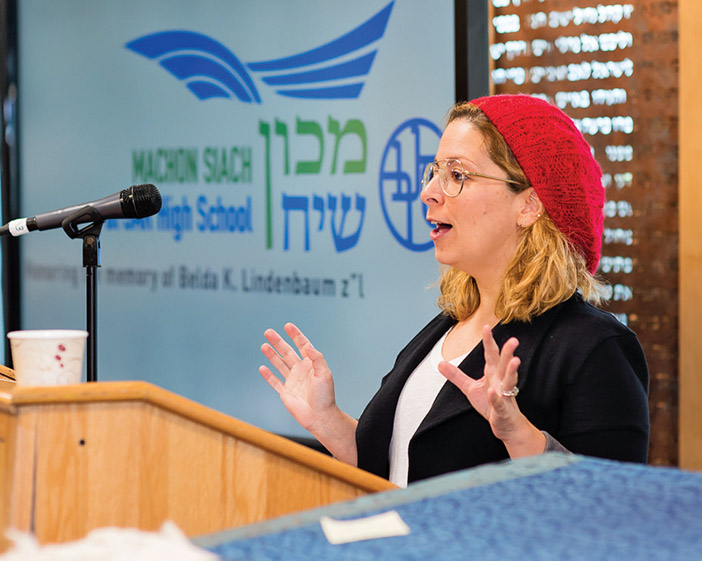

On Sunday, April 29, Machon Siach at SAR High School hosted its first public conference: “Bridging Theory and Practice: A Machon Siach Convening.” Machon Siach, established in 2015 with a gift from the Lindenbaum family to honor the memory of Belda K. Lindenbaum, z”l, is the research arm of SAR High School and explores issues which are important in the life of a Modern Orthodox Jewish High School. The program was structured to encourage authentic dialogue and collaboration among the presenters and the participants.
Rabbi Shmuel Hain introduced and moderated the program, while three speakers addressed topics which they are currently studying and will be the subject of research papers and talks. Shuli Taubes spoke about sexual ethics and how to do a better job of building an educational system firmly rooted in halacha that also reflects the reality of the lives of Modern Orthodox young adults prior to marriage. She posited studying the topic through the lens of ethics, where everyone would be taught to regard their partners “b’tselem Elokim.”
Dr. Rivka Schwartz explored teaching American citizenship in our yeshiva high schools. She noted that unlike in earlier generations, modern high school curricula no longer contain a civics component. She explored the ways in which Torah education can work to support notions of citizenship and the ways in which it can work against them. Finally, she noted that a modern focus on the inequities in American history (such as slavery) may have left the narrative lacking in examples that make students feel proud.
The final presentation by Rabbi Tully Harcsztark explored a new Machon Siach initiative with other high schools in the “yeshiva league” addressing party culture and substance use. Recently, seven high schools have been meeting to discuss the challenges facing high school students and the pervasiveness of controlled substances in social settings. The goal is for the high schools to share resources and ideas in crafting a program to address the issues. One model under consideration is a highly successful program launched in Reykjavik, Iceland that significantly decreased substance use while significantly increasing family time, engagement in sports and communal activities. Another is a program based at the University of Washington, and supported by the National Institute of Health, called Communities That Care. CTC takes a public health approach to solving youth problem behaviors. Neither of these programs focus on punitive measures, but on ways to build a public health initiative like the anti-smoking campaigns of the last 30 years that have caused significant changes in American health and culture.
Coming this fall, Machon Siach will be holding new programs for alumni and parents and talks on topics in Israel Education. Machon Siach is also currently accepting applications for the bogrim program for college age alumni to be held at SAR High School from May 29- June 1.
For more information, visit Machon Siach’s new website at www.machonsiach.org.













